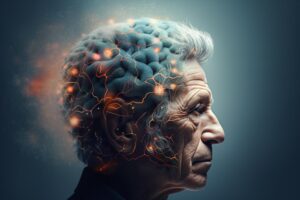10 Common Myths About Alzheimer’s Debunked
How To Create A Supportive Environment For Alzheimer’s Patients
Establish Routine: Following a daily routine for activities such as eating, exercising, and sleeping will provide structure and reduce anxiety.
Ensure Safety: Eliminate hazards and provide safety features such as handrails and grab bars to reduce the occurrence of falls and accidents.
Promote Independence: Motivate patients to get involved in daily chores as much as possible, providing help when necessary but giving them an opportunity to remain independent.
Provide Clear Communication: Use simple words, include visuals and gestures to improve understanding and make communication easier.
Create a Calm Environment: Remove noise, clutter, and distractors to help manage stress and agitation. Think about relaxing music or sounds of nature.
Encourage Engagement: Provide engaging activities like puzzles, games, music, and art therapy that foster cognitive abilities, imagination, and socialization.
Be Patient and Understanding: When dealing with them, be empathetic and understanding, giving more time for tasks and offering encouragement and support as necessary.
Offer Emotional Support: Validate feelings, comfort patients, and listen to concerns and emotions patients express, recognizing their experiences and having a compassionate presence.
Provide Nutritious Meals: Serve balanced meals that are satisfying according to the dietary practices and requirements. Make sure that easy-to-eat foods and hydration are provided throughout the day.
Foster Social Connections: Provide opportunities for social interactions and significant connections with the family, friends, and peers by visits, group activities, and community events.
Involve Caregivers: Teach and work with caregivers in the caregiving process, offering support, resources, and respite care to avoid burnout and promote general wellness.

What Are the Risk Factors for Alzheimer’s Disease?
Age: The major risk factor is aging. After age 65, the risk increases significantly.
Genetics: This increases the risk even further if a first-degree relative has been diagnosed with dementia.
Genetic Mutations: Specific gene mutations, for example, the genes APP, PSEN1, and PSEN2, contribute to the likelihood, particularly in the early-onset Alzheimer’s.
Down Syndrome: People with Down syndrome are more likely to get Alzheimer’s.
Cardiovascular Health: Risk factors include high blood pressure, high cholesterol, diabetes, obesity, and smoking.
Traumatic Brain Injury (TBI): A history of moderate to severe TBI, especially multiple injuries, is associated with increased risk.
Lifestyle Factors: The risk factors that can increase the risk include lack of physical activity, poor diet, low mental stimulation, social isolation, and chronic stress.
Sleep Disorders: Chronic sleep disorders such as sleep apnea or insomnia may be linked to a higher risk.
Environmental Factors: Toxins, pollutants, or specific chemicals may also play a role in the increased risk.
How Does Alzheimer’s Progress Over Time?
Preclinical Stage: Years before any symptoms are observed, changes in the brain occur such as the accumulation of abnormal proteins such as beta-amyloid and tau.
Mild Cognitive Impairment (MCI): In this early phase, people may have mild memory loss and cognitive change that are apparent to the persons and sometimes to others but not disabling to the point of interfering with their daily activities.
Mild Alzheimer’s Disease: Symptoms become more severe, such as memory loss, disorientation, aphasia, and problems with judgment. People can also develop mood and behavioral changes.
Moderate Alzheimer’s Disease: Cognitive deterioration increases, and people may need additional help with their daily activities. The memory loss becomes worse and people may not be able to recognize familiar faces or objects. Behavioral symptoms such as agitation, aggression, and wandering may also appear.
Severe Alzheimer’s Disease: In the end, people are unable to speak, recognize family members, and perform activities of daily living on their own. They may need 24-hour monitoring and need help with all aspects of care, and often develop complications such as infections, aspiration and weight loss.
The further stages of Alzheimer’s disease may be accompanied by mood, personality, and behavioral changes as well as physical decline.
The rate of degeneration differs from individual to individual since some people may have faster or slower decline than others.
Caregivers and health care providers should provide support, care, and resources at every stage of the disease to ensure quality of life and dignity for Alzheimer’s patients and their families.
Does Alzheimer’s skip a generation?
Alzheimer’s disease may seem to “jump” a generation in families, but it is not as simple as one gene being passed from one generation to another.
Although genetics do contribute to Alzheimer’s disease, it is a complicated condition that has both genetic and environmental factors.
In certain families, a pattern of Alzheimer’s disease can be identified in which numerous relatives from different generations are afflicted.
This may imply a family or genetic predisposition to the condition. But not all cases of Alzheimer’s disease are genetic and many people with no family history of the disease can still develop it.
There are two main types of Alzheimer’s disease:
Early-Onset Alzheimer’s Disease: Early-onset Alzheimer’s occurs before the age of 65 years and is less prevalent than late-onset Alzheimer’s.
Early-onset Alzheimer’s is frequently linked to genetic mutations, such as mutations of the APP, PSEN1, and PSEN2 genes.
In these families, the disease may be inherited in an autosomal dominant mode where a person with a single copy of the mutated gene from one parent is likely to develop the disease, usually at a young age.
Late-Onset Alzheimer’s Disease: This is the most prevalent type of Alzheimer’s disease and is usually experienced after 65 years of age.
Researchers believe that late-onset Alzheimer’s is caused by a combination of genetic, environmental, and lifestyle factors.
Although family history of late-onset Alzheimer’s disease can increase the likelihood of developing the disease, it does not mean that an individual will surely develop it, and the pattern is more complicated than in the early-onset cases.

FAQ
What is Alzheimer’s disease?
Alzheimer’s disease is a progressive neurological disorder that affects the brain, causing memory loss, cognitive decline, and difficulty with daily tasks.
What are the early signs of Alzheimer’s disease?
Early signs may include memory loss, difficulty finding words, challenges in problem-solving, confusion about time or place, and changes in mood or personality.
Is Alzheimer’s disease hereditary?
While genetics can play a role, Alzheimer’s disease is not solely hereditary. Having a family history may increase the risk, but other factors also contribute.
How is Alzheimer’s disease diagnosed?
Diagnosis involves a medical evaluation, including medical history, cognitive tests, neurological exams, and sometimes brain imaging tests.
Is there a cure for Alzheimer’s disease?
Currently, there is no cure for Alzheimer’s disease. Treatment focuses on managing symptoms and improving quality of life.
What is the difference between Alzheimer’s disease and dementia?
Alzheimer’s disease is the most common cause of dementia, which refers to a group of symptoms affecting memory, thinking, and social abilities.
How long do people live with Alzheimer’s disease?
The progression and lifespan vary, but on average, individuals live about 4 to 8 years after diagnosis. Some may live longer, while others may decline more rapidly.
How can Alzheimer’s disease be prevented?
While prevention strategies are not guaranteed, maintaining a healthy lifestyle, engaging in cognitive activities, managing cardiovascular health, and staying socially active may help reduce the risk.
What is the role of caregivers in Alzheimer’s care?
Caregivers play a crucial role in providing support, assistance with daily tasks, and emotional comfort for individuals with Alzheimer’s disease.
Is research being conducted for Alzheimer’s treatment?
Yes, ongoing research aims to better understand the disease, develop new treatments, and explore potential preventive measures.






Write a comment
Your email address will not be published. All fields are required